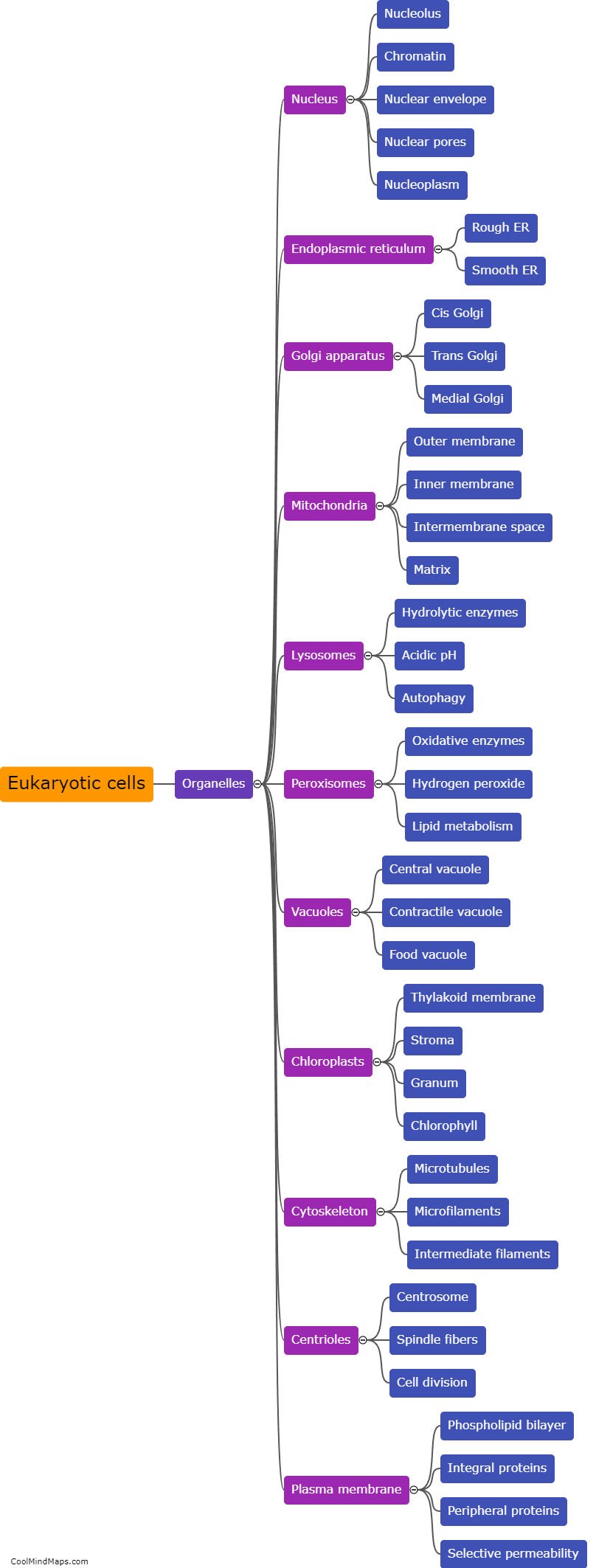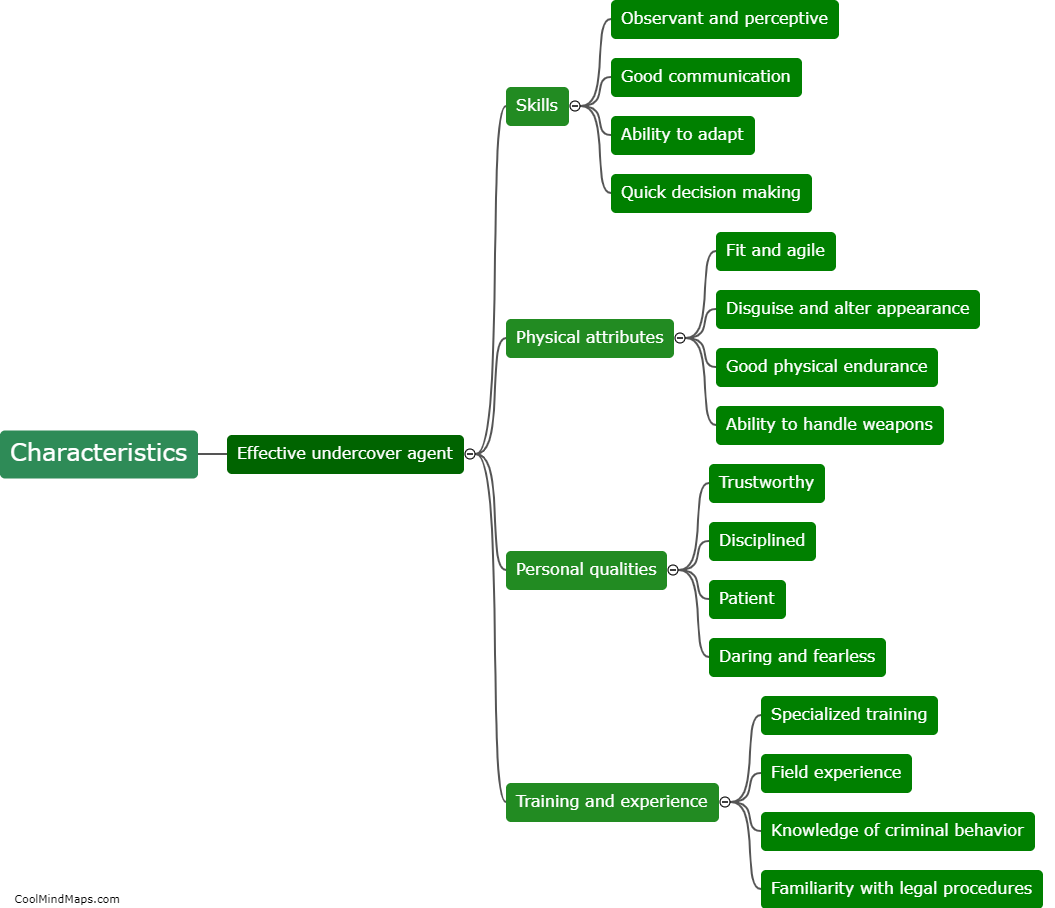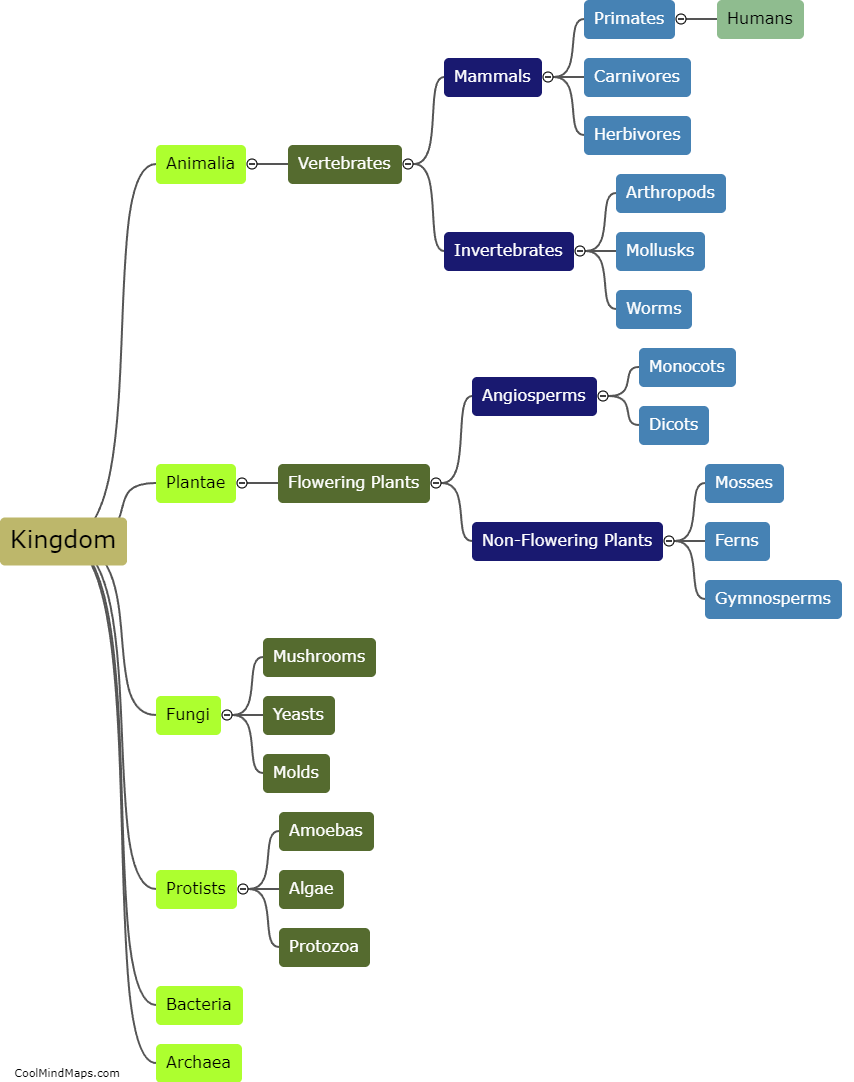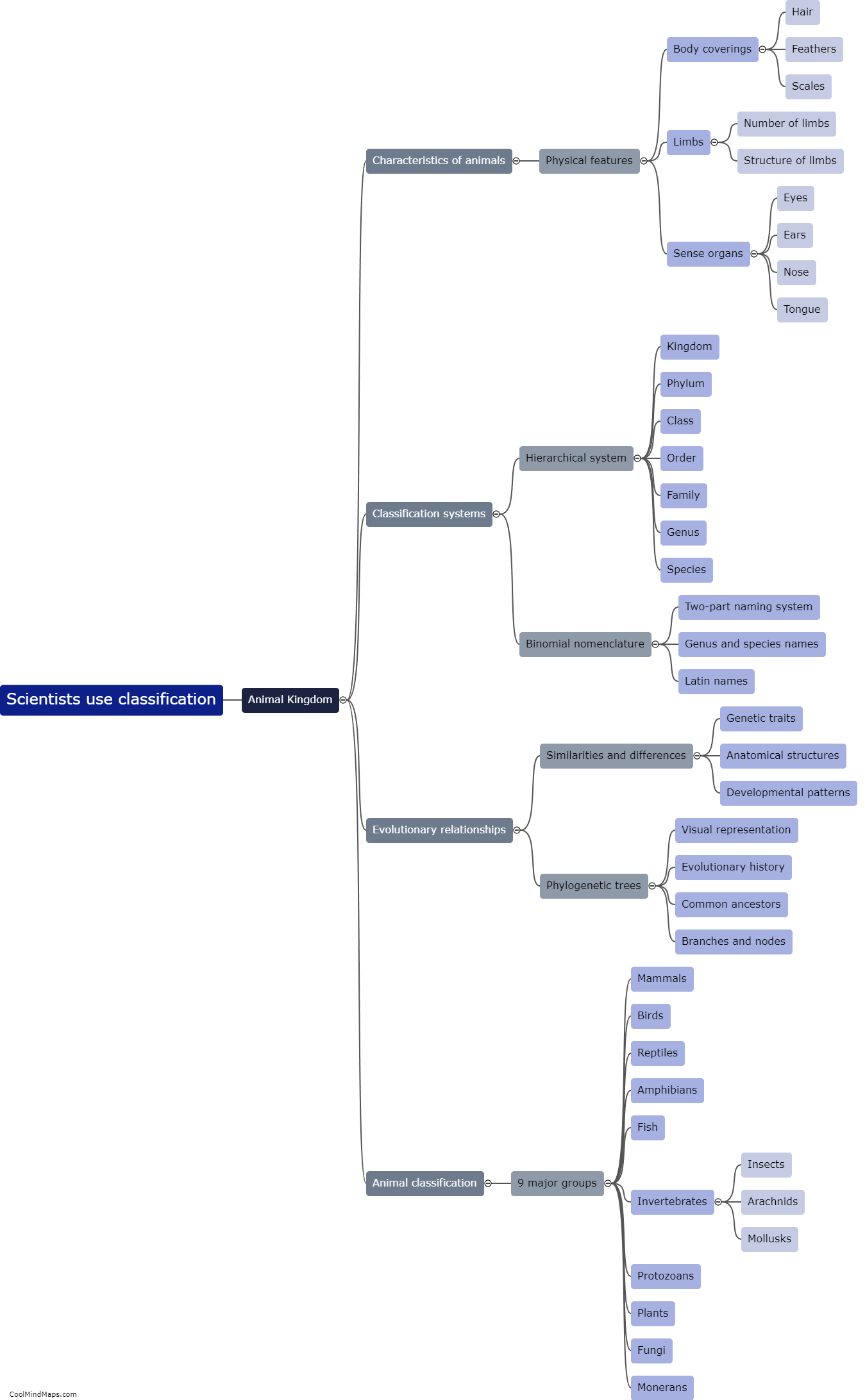What are the major organelles found in eukaryotic cells?
Eukaryotic cells are complex in nature and contain various organelles that perform specific functions within the cell. The major organelles found in eukaryotic cells are the nucleus, mitochondria, endoplasmic reticulum, Golgi apparatus, lysosomes, and vacuoles. The nucleus is the control center of the cell, containing the DNA and regulating gene expression. Mitochondria are responsible for cellular respiration and energy production. The endoplasmic reticulum plays a crucial role in protein synthesis and lipid metabolism. The Golgi apparatus modifies, sorts, and packages proteins for transport. Lysosomes are involved in the breakdown of waste materials and cellular recycling. Vacuoles are storage compartments for various substances, including water and nutrients. These organelles work together to maintain the overall structure and function of eukaryotic cells.

This mind map was published on 26 October 2023 and has been viewed 97 times.











